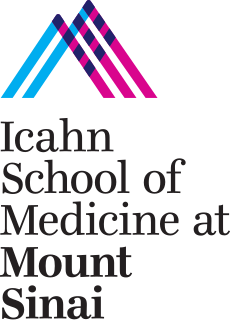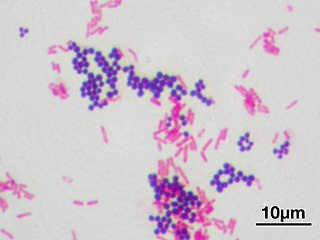
Bioterrorism is terrorism involving the intentional release or dissemination of biological agents. These agents are bacteria, viruses, insects, fungi, and/or toxins, and may be in a naturally occurring or a human-modified form, in much the same way as in biological warfare. Further, modern agribusiness is vulnerable to anti-agricultural attacks by terrorists, and such attacks can seriously damage economy as well as consumer confidence. The latter destructive activity is called agrobioterrorism and is a subtype of agro-terrorism.
The National Institute of Allergy and Infectious Diseases is one of the 27 institutes and centers that make up the National Institutes of Health (NIH), an agency of the United States Department of Health and Human Services (HHS). NIAID's mission is to conduct basic and applied research to better understand, treat, and prevent infectious, immunologic, and allergic diseases.

Tropical medicine is an interdisciplinary branch of medicine that deals with health issues that occur uniquely, are more widespread, or are more difficult to control in tropical and subtropical regions.

Mount Sinai Hospital, founded in 1852, is one of the oldest and largest teaching hospitals in the United States. It is located in East Harlem in the New York City borough of Manhattan, on the eastern border of Central Park stretching along Madison and Fifth Avenues, between East 98th Street and East 103rd Street. The entire Mount Sinai health system has over 7,400 physicians, as well as 3,815 beds, and delivers over 16,000 babies a year. In 2019–20, the hospital was ranked 14th among the nearly 5,000 hospitals in the US by the U.S. News & World Report. Adjacent to the hospital is the Kravis Children's Hospital which provides comprehensive pediatric specialties and subspecialties to infants, children, teens, and young adults aged 0–21 throughout the region.

The Icahn School of Medicine at Mount Sinai, formerly the Mount Sinai School of Medicine, is a private medical school in New York City. It is the academic teaching arm of The Mount Sinai Health System, which manages eight hospital campuses in the New York metropolitan area, including Mount Sinai Hospital and the New York Eye and Ear Infirmary.

New York Eye and Ear Infirmary of Mount Sinai (NYEE) is located at East 14th Street and Second Avenue in lower Manhattan, New York City. Founded on August 14, 1820, NYEE is America's first specialty hospital and one of the most prominent in the fields of ophthalmology and otolaryngology in the world, providing primary inpatient and outpatient care in those specialties. Previously affiliated with New York Medical College, as of 2013 it is affiliated with the Icahn School of Medicine at Mount Sinai as a part of the membership in the Mount Sinai Health System.
Merle Alden Sande was a leading American infectious-diseases expert whose early recognition of the looming public health crisis posed by AIDS led to the development of basic protocols for how to handle infected patients. He graduated from Washington State University and received his MD degree from the University of Washington, School of Medicine in Seattle.

The Mount Sinai Health System is a hospital network in New York City. It was formed in September 2013 by merging the operations of Continuum Health Partners and the Mount Sinai Medical Center.

Louie Mar Gangcuangco is a Filipino physician, HIV researcher and novelist. He is the author of the novel Orosa-Nakpil, Malate and is working as a clinical research associate for the Hawaii Center for AIDS.
Barton Ford Haynes is an American physician and immunologist internationally recognized for work in T-cell immunology, retrovirology, and HIV vaccine development. Haynes is a Frederic M. Hanes Professor of Medicine and Immunology at Duke University Medical Center. He is the director of the Duke Human Vaccine Institute and the Duke Center for HIV/AIDS Vaccine Immunology and Immunogen Discovery (CHAVI-ID), which was funded by the National Institute of Allergy and Infectious Diseases (NIAID) in 2012. In addition, Haynes directs the B-cell Lineage Envelope Design Study, the Centralized Envelope Phase I Study, and the Role of IgA in HIV-1 Protection Study as part of the Collaboration for AIDS Vaccine Discovery (CAVD), which was funded by the Bill and Melinda Gates Foundation in 2006.
Michael Stuart Gottlieb is an American physician and immunologist known for his 1981 identification of acquired immune deficiency syndrome (AIDS) as a new disease, and for his HIV/AIDS research, HIV/AIDS activism, and philanthropic efforts associated with HIV/AIDS treatment.

Andrew Kasarskis is an American biologist. He is the Chief Data Officer (CDO) at Sema4. He was previously CDO and an Executive Vice President (EVP) at the Mount Sinai Health System in New York City and, before that, vice chair of the Department of Genetics and Genomic Sciences and Co-director of the Icahn Institute for Genomics and Multiscale Biology at the Icahn School of Medicine at Mount Sinai. Kasarskis is known for taking a network-based approach to biology and for directing the first medical school class offering students the opportunity to fully sequence and analyze their own genomes.

Infectious diseases or ID, also known as infectiology, is a medical specialty dealing with the diagnosis and treatment of infections. An infectious diseases specialist's practice consists of managing nosocomial (healthcare-acquired) infections or community-acquired infections and is historically associated with hygiene, epidemiology, clinical microbiology, travel medicine and tropical medicine.

Janet L. Mitchell was an American physician known for her advances in perinatal HIV/AIDS treatment. During the early days of the AIDS epidemic in the U.S. Mitchell developed protocols for health treatment of pregnant women who were HIV positive or at risk for developing AIDS. She advocated against mandatory testing and testifying before Congress, she advocated in favor of an inclusive approach to health care and social services. One of her innovations derived from a study that saw a 70% decrease in HIV transmission to babies when AZT was administered to their mothers during the pregnancy.
Daniel R. Lucey is an American physician, researcher, senior scholar and adjunct professor of infectious diseases at Georgetown University, and a research associate in anthropology at the Smithsonian National Museum of Natural History, where he has co-organised an exhibition on eight viral outbreaks.

Mount Sinai West, opened in 1871 as Roosevelt Hospital, is affiliated with the Icahn School of Medicine at Mount Sinai and the Mount Sinai Health System.
Valerie Ellen Stone is an American physician who is a professor of medicine at the Harvard Medical School. She serves as Vice Chair for Diversity, Equity, and Inclusion, Department of Medicine, Brigham and Women's Hospital. She specialises in the management of HIV/AIDS, health disparities and improving the quality of medical education.
Stephanie Factor is an internist who specializes in infectious diseases and an epidemiologic researcher at the Icahn School of Medicine at Mount Sinai and was an Epidemic Intelligence Service officer in the Respiratory Diseases Branch of CDC when she led the field investigations in the Central Asian Republics; medical epidemiologist in the CDC Bioterrorism Preparedness Response Program assigned to the New York City Department of Health and Mental Hygiene to develop emergency response plans for New York City.
Amesh Adalja is an American infectious disease physician. He specializes in infectious disease, bioterrorism, and emergency medicine at Johns Hopkins Center for Health Security and a clinical assistant professor at the University of Pittsburgh School of Medicine.
John Gill Bartlett was an American physician and medical researcher, specializing in infectious diseases. He is known as a pioneer in HIV/AIDS research and for his work on vancomycin as a treatment for Clostridioides difficile infection.











